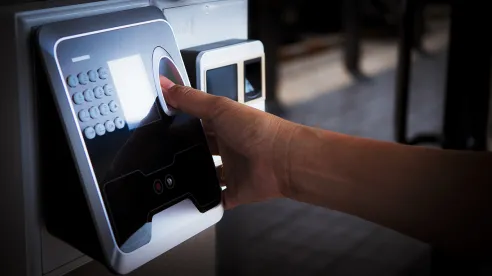On September 17, 2021, an Illinois Appellate Court addressed the appropriate statute of limitations period for claims brought pursuant to the Illinois Biometric Information Privacy Act (“BIPA” or the “Act”), 740 ILCS § 14/1, et seq., holding that (1) claims asserted under sections 15(c) and (d) of the Act are subject to a one-year statute of limitations period, while (2) claims brought under sections 15(a), (b), and (e) are subject to a five-year statute of limitations period. Tims v. Black Horse Carriers, Inc., No. 1-20-0563.
Background
In September 2019, the trial court in Tims considered the applicable statute of limitations period for BIPA claims. Since BIPA does not contain an express statute of limitations period, the plaintiff argued that Illinois’ five-year catchall limitation period applied. The defendant, however, argued that Illinois’ one-year limitations period for invasion of privacy claims applied. The trial court sided with the Plaintiff, and held that BIPA claims are subject to a five-year statute of limitations period. The court then certified the statute of limitations question for appeal.
Appellate Court Decision
In answering the lower court’s certified question, the three-judge state appellate panel held that because Illinois’ one-year statute of limitations applies to “publication of matter violating the right of privacy,” that limitations period only applies to BIPA claims brought under section 15(c), which restricts private parties from selling, leasing, trading, or profiting from biometric data, and section 15(d), which prohibits the disclosure and dissemination of biometric data absent specific prerequisites. Under these sections, according to the panel, publication or disclosure of biometric data is “clearly an element of an action.” Tims, at 9.
However, the panel held that Illinois’ five-year catchall statute of limitations period applies to sections 15(a), (b), and (e) of BIPA because those sections “have absolutely no element of publication or dissemination.” Id. Section 15(a) governs retention schedules and destruction guidelines for biometric data, section 15(b) prohibits the collecting or obtaining of biometric data without written notice and release, and section 15(e) requires parties to take reasonable care in storing, transmitting, and protecting biometric data. 740 ILCS §§ 14/15(a), (b), (e).
The panel found that the language in Illinois’ one-year statute of limitations could not apply to sections 15(a), (b), or (e) because a plaintiff could bring an action under those sections without having to allege or prove that the defendant published or disclosed any biometric data to any person or entity beyond itself. As the panel put it, an action under those sections is “not an action for publication of matter violating the right of privacy.” Tims, at 9.
Conclusion
The Tims decision is a significant development in BIPA-related litigation, as plaintiffs now have five years to bring certain claims under the statute. We will continue to monitor developments relating to this decision.





 />i
/>i

